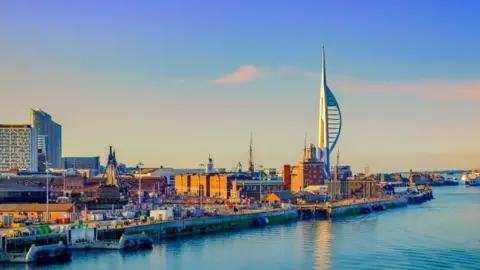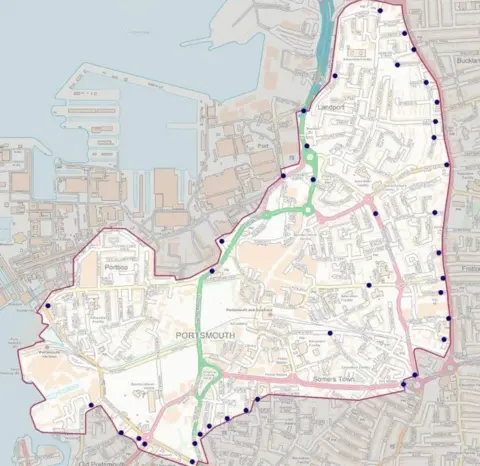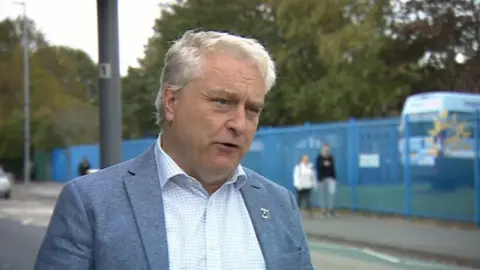Portsmouth City Council Clean Air Zone 'to last two years' - council leader
 Getty Images
Getty ImagesPortsmouth's clean air zone scheme should only be required "for a couple of years", its council leader has said.
To travel through the zone high-polluting private hire vehicles and taxis will be charged £10, while buses, coaches and lorries face a £50 fee.
Gerald Vernon-Jackson said he was opposed to the scheme, which he said had been "imposed" by the government.
The Department for Environment, Food and Rural Affairs (Defra) said the zone would help tackle pollution.
But Mr Vernon-Jackson said with or without it the air will be at acceptable levels in two years.
The scheme comes into force at the end of November.
According to the Local Democracy Reporting Service, the council was issued a ministerial directive in 2020 ordering it to set up the zone because of breaches in nitrogen dioxide levels, and allocated £6.6m to improve air quality.
 Portsmouth City Council
Portsmouth City CouncilPortsmouth City Council boss Mr Vernon-Jackson, a Lib Dem councillor, said the zone would "work to a degree", but believes there are "cheaper and more effective ways" of reducing pollution, including car scrappage schemes and reducing bus fares.
He added: "Without a clean air zone our air would get to the right level in two year's time.
"Bringing in the clean air zone will make that one year earlier, so it should only take a year to get to the right level of clean air.
"Once the air is at what they describe as a sustainably cleaner level, then the Clean Air Zone goes. I hope it's only going to be here for a couple of years."

Portsmouth will be the third area in the country to bring in a clean air zone, following Bath and North East Somerset, and Birmingham.
Private cars and vans are not included in the daily charges.
In a statement about the scheme, a Defra spokesperson said it was taking "urgent action" to tackle high pollution across the UK.
They added: "We are working closely with local authorities to introduce clean air zones so we can help them to target the pollution affecting their communities - to protect ourselves and the environment."

Follow BBC South on Facebook, Twitter, or Instagram. Send your story ideas to south.newsonline@bbc.co.uk.